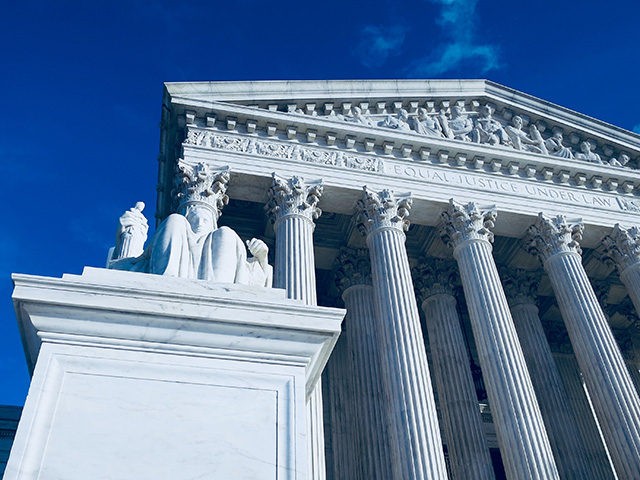The United States Supreme Court heard oral arguments on Tuesday in a case challenging the unchecked power of the Consumer Financial Protection Bureau (CFPB), part of the administrative state formed in the wake of the 2008 financial crisis as part of the 2010 Dodd–Frank Wall Street Reform and Consumer Protection Act.
The case, Seila Law LLC v. Consumer Financial Protection Bureau, made its way through the courts after Seila refused to honor CFPB’s request for information through a civil investigative demand, and challenged the agency’s structure, calling it unconstitutional.
“Since the New Deal era, Congress has enabled the rise of the administrative state,” Matthew C. Forys of the Landmark Legal Foundation told Breitbart News.
The foundation was one of many conservative groups that filed an amicus brief in support of petitioner Seila Law LLC.
“It has repeatedly asserted that there are policy areas that need to be regulated by agencies with political independence,” Forys said. “But political independence is just another way of describing a lack of political accountability.”
“All of the policy arguments in support of an independent agency like the Consumer Financial Protection Bureau are trumped by the constitutional requirement of a separation of powers,” Forys said. “When Congress creates administrative agencies with restrictions on the president’s power to fire the agencies’ top officials, it is interfering with the president’s executive powers and duties under the Constitution to a certain extent.”
“But Congress took a step even further by creating a new organization with broad powers, the CFPB, and placing a single director in charge who can only be fired for cause during a five-year term of office,” Forys said.
The argument respondents made is that Congress has the power under the Constitution to structure and organize agencies in the executive branch, including assigning functions to executive officers and to restrict the president’s removal of executive officers only to situations when the director fails to perform his or her duties.
The CFPB was championed by former President Barack Obama, who tapped Sen. Elizabeth Warren (D-MA) in 2010 to set up the new agency — a role she enthusiastically assumed and still champions today.
During oral arguments, the Supreme Court justices seemed focused on how this agency differs from others in the administrative state and also on how the agency is protected from presidential oversight and by Congress since CFPB’s funding is separate from the appropriations process.
“Never before in American history has Congress given so much executive power to a single individual who does not answer to the president,” Kannon Shanmugam, Seila’s attorney, told the court. “By significantly limiting the president’s ability to remove the CFPB’s director, Congress violated the core presidential prerogatives to exercise the executive power and to take care that the laws be faithfully executed.”
Justices also asked about the agency’s complete separation for the president as head of the executive branch.
“How much does it matter that the tenure of the single director continues into the next president’s term?” Justice Brett Kavanaugh asked Noel Francisco, solicitor general at the Department of Justice who represented the Trump administration, told the court. “Because I think that’s when the problem really reveals itself, that the next president is going to have to deal for his or her whole term, potentially, with a CFPB director appointed by this president and will not be able to supervise or direct that person, even if that president has a wildly different conception of consumer financial protection?”
“I think that illustrates the nature of the problem, your honor,” Francisco said. “Even if you didn’t have that, I still think this for-cause removal restriction would be unconstitutional.”
Progressive justices seemed to embrace what they expressed as CFPB’s “independence,” while conservative justices seemed to weigh striking it down or possibly changing Dodd-Frank to expand its leadership and give the president more control over that leadership.
And as is the case in many cases before the Supreme Court, justices also parsed the separation of powers.
“Why don’t we just leave it to the political branches, who actually know about these things?” Justice Elena Kagan said during oral arguments.
Even after 70 minutes of oral arguments it seemed unclear on what the justices would decide in the case, which could range from abolishing CFPB or a severability ruling to change the structure of CFPB.
A decision is expected next summer.
The case is Seila Law LLC v. Consumer Financial Protection Bureau, No. 19-7 in the Supreme Court of the United States.
Follow Penny Starr on Twitter.

COMMENTS
Please let us know if you're having issues with commenting.